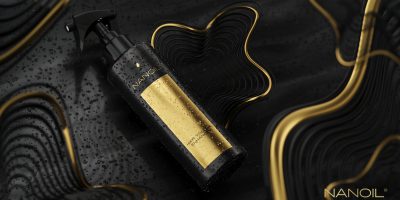Cosmetics labeled natural are believed to be the best, and they should definitely be free from silicones. However, things aren’t always black and white. Are silicones in shampoos and conditioners always bad? When should you avoid them and when do they become your ally? If you are interested in the topic, keep reading.
![]()
Silicones first occurred in cosmetology in the 1950s so their history isn’t long. Still, this was enough time for numerous myths to surround the notorious substances. Few people know the truth – do silicones really cause damage or do they have some benefits (they were put into hair products for a reason)?
What are silicones?
Colorless and scentless polymers extracted from organic silicon. Silicones act like emollients (e.g. oils) and envelope the skin to lock in moisture and protect against the damaging factors.
The most common silicones found in the INCI of various hair products:
Cyclopentasiloxane, Cyclohexasiloxane, Dimethicone, Amodimethicone, Alkyl Dimethicone, Cetyl dimethicone, Stearoxy dimethicone, Stearyl methicone, Simethicone, Trimethylsiloxysilicate, Trisiloxane, Lauryl Methicone Copolyol, Dimethicone Copolyol, etc.
From the consumer’s point of view, the crucial thing is that all silicones are biologically inert (don’t cause allergic reactions or affect the body). Moreover, their external usage has been allowed by organizations like the Scientific Committee on Consumer Safety.
Notoriety of silicones
Considering the above facts, it is intriguing what caused cosmetic silicones to become so notorious. There are some theories explaining the issue.
- Silicones aren’t natural, they are usually synthesized in labs, not extracted from plants. Even though there are lots of other ingredients not coming from nature, silicones got the label for the most artificial ones.
- Silicones may weigh hair down – this is true. Still, let’s face it: it’s usually caused by overusing silicone-based products that build up on the hair. Plus, silicones are either easy or hard to wash out. We don’t know that and often don’t use the right washing products.
Do silicones cause damage to hair?
The truth is silicone-based products don’t cause damage to the hair. You just need to remember to use them following the directions and remove the buildup regularly.
If we don’t care to clear hair of silicones, they are likely to weigh strands down, make them greasy fast and take volume away. In extreme cases, they may cause scalp irritations and dandruff. Silicones stay long on the hair roots upsetting the balance of the scalp and disturbing function of sebum glands.
Positive effect of silicones
At the same time, we cannot forget the great potential of silicones in haircare and we shouldn’t treat them like evil. Correctly suited and used properly, silicones:
- instantly smooth the hair.
- make hair easier to brush (painfree brushing).
- boost shine.
- protect hair against harmful ingredients.
- prevent loss of water.
- control frizz and static.
- shield against heat damage.
Quite a lot of benefits for such notorious substances that are said to cause damage. This means one thing: you shouldn’t avoid silicone hair products because they are likely to remedy your hair. Silicones are recommended for frizzy, static, stiff, dull hair, and to facilitate styling and brushing. If you show moderation, they can tame the most unruly hair and turn your hair around.


Leave a Reply